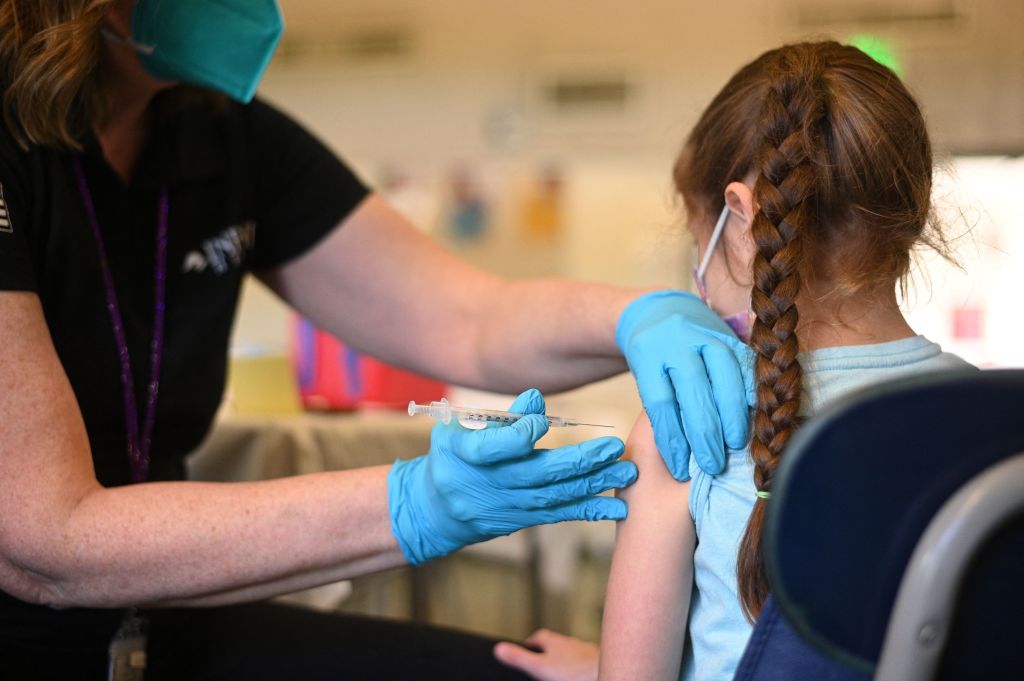
Over the past three years, COVID-19 has directly touched every aspect of our society, including children. Although less severe in children than adults, COVID-19 is now the fifth-leading cause of disease-related death among those under 19 years old. Yet, as the pandemic and its direct effects on children are easing, there are other concerns that the medical community must contend with—a problem, in large part, due to the spillover effects of misinformation and politics on pediatrics.
Today we are seeing long-established norms of basic pediatric practice being discredited and ignored, and a concerning rise in vaccine and pediatric misinformation. In 2019 alone, childhood vaccinations prevented more than 24 million cases of vaccine-preventable diseases in the U.S. But over the course of the COVID-19 pandemic, the anti-vaccine movement has greatly escalated its generalized anti-pediatric vaccine attacks. This misinformation spread is having real consequences for the public: The number of parents who believe that they should be able to decide not to immunize their school-age children, even if being unvaccinated creates health risk for other children, nearly doubled between 2019 and 2022, to about 30%.
Read More: We Still Don’t Know What Works Best to Slow the Spread Of COVID-19
It is worrisome that rates of vaccination for young children in some areas of the U.S. have now fallen below levels needed for population immunity. In January 2023, an outbreak of measles in Ohio in more than 80 under-vaccinated children resulted in nearly 40% of them being hospitalized. In the past, there would have been public outrage if this occurred. But in 2023, the public response to the outbreak was muted.
Rather than recognizing the established pediatric wisdom that consistently speaks in evidence-based support of immunization, we are now seeing widespread legislative attempts to roll back school vaccine requirements and escalating social media attacks aimed at experts in pediatric infectious disease who advocate for childhood vaccines. We’re also seeing prominent pediatricians removed from important state positions in Tennessee and Florida, for vaccine-related issues.
More from TIME
There has been similar political backlash against pediatric care for children with gender dysphoria, with a flurry of false information mischaracterizing the care that these children receive. Although such children may see specialists for some aspects of their health care, pediatricians also care for these children in the primary care setting, and also understand the special mental health challenges and complex care needed for these patients. To the concern of many, across the U.S., there are numerous legislative bills against supporting pediatric transgender care, irrespective of the wishes of parents and children. These political restrictions of transgender care are causing great concern in the pediatric community, and undermine the pediatrician-patient-family relationship. These legislative efforts also ignore the collective voice of the established pediatric medical community.
In 21 states, hospitals and health care providers participating in pediatric transgender care have recently been threatened or harassed, in part due to right-wing groups spreading false information. Bomb threats made against children’s hospitals for providing pediatric transgender care not only disrupt such care but disrupt general hospital operations, as well.
A different, but somewhat related dynamic is at play in the ongoing battles about access to abortion, where attempts to restrict such access is often coupled with efforts to restrict reproductive health education, and birth control access by teenagers. The backlash against sex-education in schools is associated with disinformation too. These political actions are causing pediatric and other care providers to make a choice: either work in parts of the U.S. where such restrictions are not in teenagers’ best interests, or leave, abandoning the geographical area.
This is happening at a time when the pediatric health care workforce is already decreasing. Fewer medical school graduates are going into pediatrics or other forms of primary care than just a few years ago, and the rate of retirement among established providers is increasing. Soon, we will be facing worsening pediatric workforce shortages—especially in many regions of the U.S. where residents struggle to get effective health care and are more likely to be impacted by sexual health legislation.
Irrespective of whether we agree or disagree with new legislation and political influence on pediatrics, we need to ask ourselves: Are we comfortable with the sort of threats and actions that are now being taken against pediatricians simply for advocating for longstanding core practices? Why are we listening to orchestrated campaigns of false facts related to pediatric care rather than mainstream pediatric organizations?
We all need to consider what the long-term consequences will be when we stop listening to the professionals with decades of education, training, and experience who care for the 73 million children in this country. It also begs one more, vital question we all need to put to ourselves: When a parent or guardian brings a child to their pediatrician for medical care and guidance, who do we want to decide their treatment—their licensed health care providers or politicians?
More Must-Reads from TIME
- Why Biden Dropped Out
- Ukraine’s Plan to Survive Trump
- The Rise of a New Kind of Parenting Guru
- The Chaos and Commotion of the RNC in Photos
- Why We All Have a Stake in Twisters’ Success
- 8 Eating Habits That Actually Improve Your Sleep
- Welcome to the Noah Lyles Olympics
- Get Our Paris Olympics Newsletter in Your Inbox
Contact us at letters@time.com